
|
|
|


"RIS Tech Series Course #1" on Pixar's RenderMan Community site explores the technical side of rendering with RenderMan21, and explaining through a educational and "why and how does it work" approach to the lessons. There will be explainer diagrams and renders, but we also dive into sessions in Maya to show the lessons in action! Each course consists of 10 classes of roughly 30-45min each video tutorial.
"Pixar's Essential RenderMan Training" on Lynda.com Filmed at Lynda.com's studios in Santa Barbara in December 2015, this brand new course covers the very latest in Rendering, Materials, and Lighting in Pixar's RenderMan for Maya.
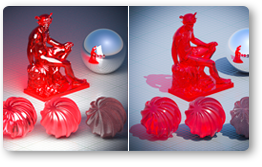 |
RND203: Shading with RIS in RenderMan Branching off from our intro to the latest in RenderMan’s RIS technology (RND102), we dive deeper into all the goodies this new package has to offer: The new layered LM Shading system, new Pattern nodes including procedural texturing, scripting with SE Expressions, OSL, custom presets, and much more! We’ll be focusing our work in Maya/RenderManStudio as well as touching on more advanced topics with RenderMan ProServer. |
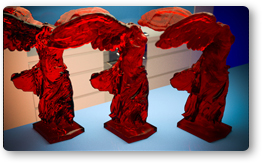 |
RND102: Introduction to Path Tracing and RIS in RenderMan With a new version of RenderMan (19) comes an additional completely different rendering architecture: path tracing (uni & bi-directional) in RIS mode, new BRDF's and Integrators wrapped in a new shading pipeline. With all this new stuff as well as support for the "classic" REYES rendering mode, prof Christos Obretenov will dig into definitions of core concepts and terminology, cover this paradigm shift with all the new features and workflows, as well as compare with the "classic" support of REYES rendering and compare the pros/cons of each within different contexts. |
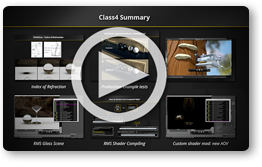 |
RMS201: Physically Plausible Shading in RenderMan Studio. So much has changed since the recent addition of the physically plausible shading paradigm in Pixar's RenderMan, this course presents the concepts, explanations, and practical workflows of this new shading and lighting system in RenderMan Studio. If you're familiar with previous "traditional" rendering in older versions of RenderMan Studio, this course will get you up to speed with the contemporary physically plausible system, and if you're new to RenderMan Studio its a great place to start with the latest techniques used in rendering. |
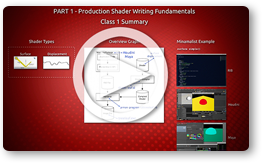 |
RND301: Production Shader Writing Fundamentals & Physically Plausible Shading. Following the RND202 class “Renderman Techniques in Production”, this course dives deeper into the fundamentals of Shader Writing in the Renderman Shading Language (RSL), as well as the newer Physically Plausible shading in Renderman. Technical Directors will find this course useful for expanding their shading knowledge in Renderman, by diving into the shaders and building them up step-by-step. Coming out of the course the student will be able to put into practice, in a production environment, building and using Renderman Shaders, as well as a deep understanding of Physically Plausible shading including Importance Sampling and Image Based Lighting. In addition, we cover the Phsyically Plausible shading library inside Renderman Studio 4 (for Maya), raytraced re-rendering technology, and a crash course on Renderman setup in Houdini. |
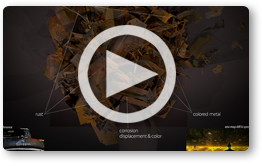 |
RND202: RenderMan Techniques in Production. Taught by Christos Obretenov, this course covers the use of the software in production. Artists and Technical Directors will find this course useful for expanding their shading knowledge in RenderMan, as well as learning some of the newer advanced ray tracing, physically-based shading, and image-based lighting techniques being used in production today. Coming out of the course the student will be able to put into practice, in a production environment, the procedural shading techniques we cover and understand their use more thoroughly, as well as design a shading/lighting pipeline around the physically-based shading and lighting paradigm. |
Contact us at info@lollipopshaders.com for any questions about your personal or staff training needs.
|
© 2019- LollipopShaders, a division of Lumnance Software Inc. Contact us: info@lollipopshaders.com Office: Suite 302C - 1551 Johnston Street, Granville Island, Vancouver, BC, Canada, V6H 3R9 |
|